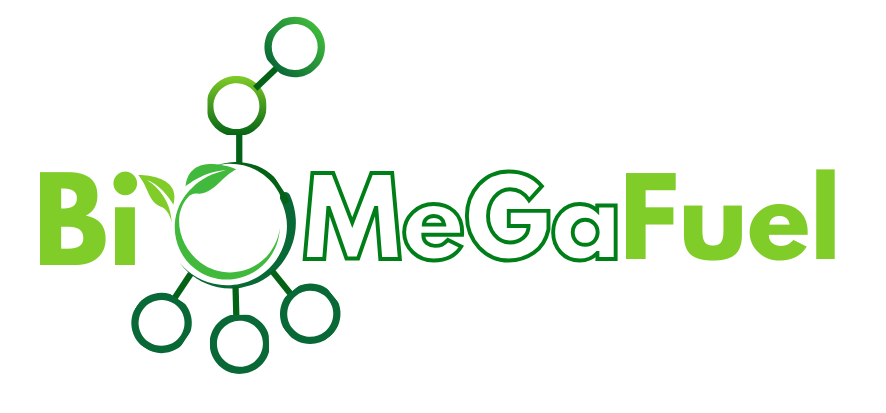
Bio-MeGaFuel addresses the utilization of low-value biomass to boost the circular economy and produce high-value products while increasing energy efficiency and reducing CO2 emissions of the whole process. Bio-MeGaFuel aims at giving low value and hard-to-utilize bioresources the opportunity to be used in the production of low-carbon key products.
Bio-MeGaFuel is designed in a way that the efficiency of the CLG unit is maximized in terms of hydrogen and carbon recovery in the form of syngas. Besides, to maximize the carbon conversion, the CO2 from the water gas shift unit is recirculated into the gasifier to promote the gasification of char and biomass. Therefore, Bio-MeGaFuel has a specific process integration and intensification that allows the maximum conversion of hydrogen and carbon from biomass to syngas. Several challenges are addressed: extension of feedstock basis, use of CO2 as fluidization agent, increase of solid circulation, and decreasing carbon leakage to air reactor . Also, autothermal chemical looping gasification of biogenic residues in an industrially relevant environment at 1 MWth scale will be validated during more than 100 hours, addressing TRL 5.
Production biomethanol using Bio-MeGaFuel approach can significantly reduce the cost of biomethanol production (>60%) due to the high conversion rate of low value biogenic residues to biomethanol (>50% higher than the conventional routes) and less intensive synthesis process. Moreover, the GHG emission of methanol producing will significantly decrease (>98% compared to fossil-based methanol) using Bio-MeGaFuel approach with no or limited CO2 separation needed. In addition, almost full conversion of biogenic carbon to biomethanol (>90%) will reach due to the high conversion rate of CO2 to methanol in membrane reactors, circulating CO2 in the process and adding green hydrogen for syngas conditioning instead of water gas shift reaction. This will also significantly increase the yield of biomethanol production from a given amount of biomass (>60% higher than the conventional routes).
Bio-MeGaFuel is well aligned with the targets of the European leadership in novel technologies, green transition, circular economy, and bioeconomy: i) Bio-MeGaFuel offers a novel process in which potential CO2 emission can be reached (CO2 recirculation and usage), ii) Bio-MeGaFuel brings low-value biogenic residue into use to increase the bioresource efficiency, iii) Bio-MeGaFuel uses technologies that are able to utilize low value biomass and produce the necessary components for methanol synthesis (carbon and hydrogen).

